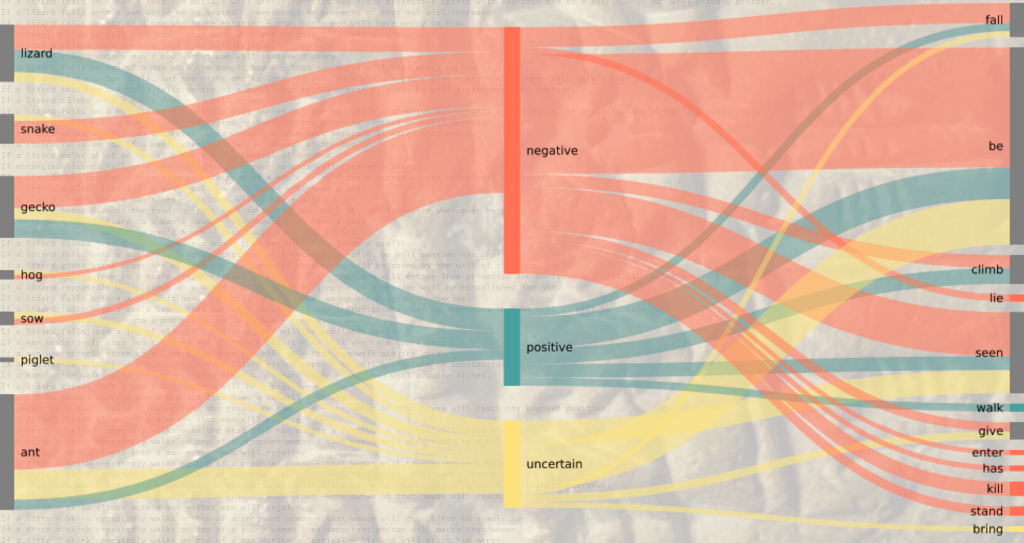Bestiarium Mesopotamicum – Animal Omens in Ancient Mesopotamia

Bestiarium Mesopotamicum is an FWF-funded cooperation project hosted at the Department for Near Estern Studies, University of Vienna, led by Nicla De Zorzi. The project examines the Ancient Mesopotamian text known by its incipit Šumma ālu ina mēlê šakin (“if a city is set on a height”) which is documented by cuneiform tablets for the most part dating to the seventh century BCE. It originally contained more than 13.000 omens, i.e., conditional clauses describing a sign (protasis) from which a prediction (apodosis) is derived. E.g.: “If a city is set on a height, living in that city will not be good.” Although large parts of the text are available in recent editions, it has not been the subject of much interpretative research. The project seeks to address this knowledge gap by focusing on those sections which contain omens dealing with the appearance and the behaviour of animals.
On the philological level, the project strives to update the available editions of the animal omens and edit (in print and online) a group of hitherto unedited omens focusing on the behavior of birds in various contexts. On the interpretative level, the project sets out to demonstrate that the animal omens of Šumma ālu should not be seen as straightforward reflections of actual animal behaviour, but are conceived as a culturally constructed bestiarium, i.e., as a mirror of human society.
The ACDH-CH is supporting the project by developing the infrastructure needed to edit, analyse, visualize and publish the texts under investigation.

Project lead
Nicla De Zorzi, Department for Near Estern Studies | University of Vienna
Contact (ACDH-CH)
Funding
FWF 10.55776/P31032
Project duration
10/2018–03/2022